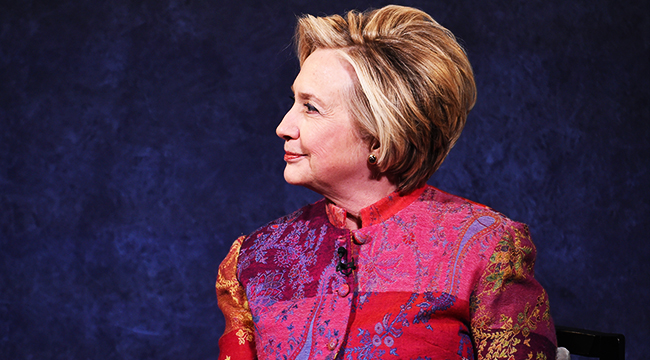
Uranium is, in theory at least, a strategic resource. It can be used to make nuclear weapons, of course, but can also be used to create fuel for nuclear power plants. So when somebody claims Hillary Clinton sold 20% of the U.S.’ strategic uranium reserves to Russia, that grabs some eyeballs. One problem: She didn’t. In fact, nobody sold any of these strategic uranium reserves to the Russians, because there was no uranium to sell. Uranium One (as Fox News’ Shepard Smith recently pointed out while dismantling his network’s coverage of the matter) is not a vast conspiracy to undermine the U.S.
Instead, the Uranium One “scandal” is the geopolitical equivalent of selling your crap on Craigslist and your roommate insisting that no, she was the one who owned that busted coffee grinder. But there is a reason to look at it: Trump, and the GOP’s, obsession with the case may lead them towards a path that burns them, although Hillary is certainly the target.
- What is Uranium One? It’s a Canadian uranium mining company, founded in 2005. In 2010, the mining division of Rosatom, Russia’s state-owned uranium monopoly, asked to buy it for $1.3 billion. That’s generally something the U.S. pays attention to, but it was in particular focus because, at the time, Uranium One owned two mines in Wyoming, one of 11 sites certified to mine uranium in the U.S. That’s where the 20% bit supposedly comes in; it quotes a letter from a Nuclear Regulatory Commission representative. It later turned out these were smaller mines, so it’s more like 10%. As you might guess, this deal has a lot of red tape, and the big question was: Could Russia steal our uranium?
- Even at the time, Russia could not steal our uranium: In addition to being a strategic asset, uranium is one of the most dangerous poisons in the world. Uranium miners have to worry about radiation on top of everything else dangerous about mining, and uranium ore is absolutely useless until you refine it, by grinding it up. You do not just pull this stuff out of the ground and throw it on the back of a FedEx truck care of Dr. Evil’s Discount Nuke Barn; the NRC has an entire division dedicated just to knowing where this stuff is, inside American borders, at any given time.
- But also, Russia didn’t want to steal our uranium: Russia has plenty of uranium. In fact it produces more uranium than the U.S. The Uranium One deal, most experts are convinced, was entirely about mines in Kazahkstan. There is, in fact, a very serious story here. Russia’s kleptocratic government appears to have manipulated the Kazahk government in order to secure highly profitable uranium mines. Oh, also, there’s 5,900 pounds of weapons-grade, refined uranium from the U.S. that was shipped overseas across decades and all we’ve got as evidence it hasn’t been stolen is “reassurances.”
- So what does Hillary Clinton have to do with all of this? Nothing. The only way you can spin Clinton as being involved is that she technically sits on the Committee of Foreign Investments In The United States, or CFIUS. The heads of nine different federal agencies sit on the committee, and Clinton wasn’t even the chair: That was Timothy Geithner, who headed up the Treasury Department in 2010. But all CFIUS does is some research to advise the President on whether or not to shut down the deal; it has no actual veto power. If even one member of the committee objects, the President can act, and all members have equal power in that regard.
- As far as U.S. security was concerned, this was a scrap-hauling run: Almost all of Uranium One’s interests were overseas and any American assets it owned were functionally untouchable and unusable for any number of reasons. Now, if you wanted to ask why the State Department seemingly did not care about outright theft of national resources in Kazahkstan, that is an excellent question and one that the GOP just is not interested in at all.
- Wait, didn’t the Russians give Clinton a bunch of money around this time?: They did, albeit indirectly. But remember, the FBI watches Russian spies and proxies like hawks, and Clinton had no particular influence here. So if influence was the goal, the Russians are incredibly bad at this. Not only that, but the vast majority of those millions came from the former CEO of Uranium One, who cashed out in 2007.
- So there’s no reason to single out Clinton?: Nope, not a one. It’s not even clear she was even aware of the deal as it was happening. As you might remember, the Secretary of State travels a lot, so it fell to Jose Hernandez, an assisstant secretary of state, to see what was what.
In short, while there are questions worth asking here about kleptocracy in Russia and about the risks of weapons-grade plutonium out in the world, this investigation will not be about those. It will be about a Facebook meme. We’ll leave any conclusions one can draw about the state of U.S. politics from this to our readers.
